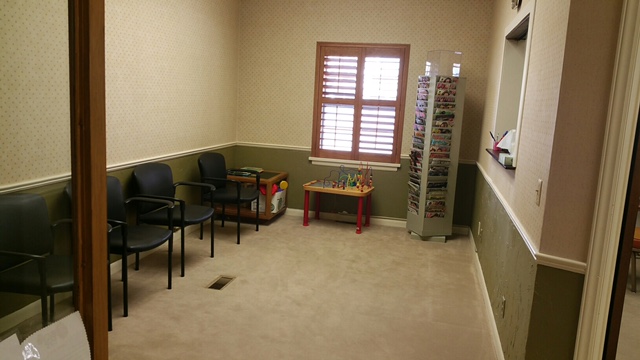Overview
Texas Panhandle Centers is a mental health treatment center for people seeking treatment near Ochiltree County. As part of their treatment modalities for recovery, Texas Panhandle Centers provides cognitive behavioral therapy during treatment. Texas Panhandle Centers is located in Perryton, Texas, accepting cash or self-payment for treatment.
Texas Panhandle Centers at a Glance
Payment Options
- Cash or self-payment
- Medicaid
- Medicare
- State-financed health insurance plan other than Medicaid
- Private health insurance
Assessments
- Screening for tobacco use
- Comprehensive mental health assessment
- Comprehensive substance use assessment
Age Groups
- Children/adolescents
- Young adults
- Adults
- Seniors
Ancillary Services
- Intensive case management
- Case management service
- Court-ordered outpatient treatment
- Diet and exercise counseling
- Family psychoeducation
Treatment At Texas Panhandle Centers

Conditions Treated
Mental health treatment:
Mental health treatment involves various therapies and support services provided by licensed professionals to address mental health issues. These interventions, which can include therapy, medication, and holistic approaches, aim to enhance well-being, improve coping, and empower individuals to lead fulfilling lives. It's personalized, comprehensive care for mental health challenges.
Substance use treatment:
Substance abuse treatment programs can help to address addiction and, if relevant, any co-occurring mental health conditions. Programs include outpatient, inpatient, dual-diagnosis, and partial hospitalization. The addict will receive therapies like cognitive behavioral therapy, or dialectical behavioral therapy, and sometimes complementary therapies like acupuncture and mindfulness-based therapy. By attending skills training and recovery groups you’ll build a strong foundation for your recovery and strengthen your support network, increasing your chances of long-term recovery success.
Co-occurring Disorders:
Dual-diagnosis rehabilitation centers often offer the most suitable approach for addressing concurrent mental health and substance abuse issues. These facilities typically employ a team of medical and behavioral specialists who utilize a variety of interventions and create a conducive healing environment to support your journey toward lasting recovery. Their comprehensive treatment approach typically encompasses evidence-based therapies such as cognitive-behavioral therapy, recovery support meetings, 12-step facilitation, psychoeducation, skills training, and group therapy to help you achieve and maintain long-term wellness.

Levels Of Care
Outpatient:
Outpatient treatment in a rehab center offers structured therapeutic services for individuals seeking recovery without full-time residential admission. Unlike intensive outpatient programs, which demand more frequent and longer sessions, standard outpatient care provides a more flexible approach, allowing participants to maintain daily activities and responsibilities while undergoing treatment.

Treatment Modalities
Cognitive behavioral therapy:
Cognitive Behavioral Therapy (CBT) is a evidence-based psychotherapeutic approach that aims to address dysfunctional emotions, behaviors, and cognitions through a goal-oriented, systematic process. It involves identifying and challenging negative thought patterns and beliefs and replacing them with more constructive ways of thinking and behaving. CBT is commonly used to treat a variety of mental health disorders, including depression, anxiety, and phobias.
Dialectical behavior therapy:
Dialectical Behavior Therapy (DBT) is an evolved version of Cognitive Behavioral Therapy (CBT) that aims to assist individuals in recognizing and influencing the interplay among their thoughts, emotions, and actions. DBT is particularly beneficial for those grappling with self-harming behaviors, including self-inflicted injuries like cutting, as well as suicidal ideations or tendencies. Clinically, it has shown effectiveness in managing intense emotions and conditions such as Borderline Personality Disorder.
Integrated Mental and Substance Use Disorder treatment:
Integrated Mental and Substance Use Disorder treatment is a comprehensive approach to treating individuals with both mental health and substance use disorders. It aims to address both conditions simultaneously through a coordinated and integrated approach. The goal is to improve overall well-being and reduce the risk of relapse.
Telemedicine/telehealth therapy:
Telehealth Therapy enables individuals to access mental health services remotely through digital technology. Utilizing secure video conferencing, individuals can engage with qualified therapists from the comfort of their home, overcoming geographical barriers and often reducing waiting times. This level of care offers a flexible and accessible approach to mental health support, especially beneficial for those with mobility issues, busy schedules, or residing in rural or underserved areas.
Smoking/vaping/tobacco cessation counseling:
Vaping Cessation Counseling is a supportive process aimed at assisting individuals who wish to quit vaping. Through personalized sessions, trained counselors help identify triggers, manage withdrawal symptoms, and develop coping strategies. This service empowers individuals to break free from vaping addiction and work towards achieving a healthier lifestyle.
Abnormal involuntary movement scale:
The AIMS is a tool with 12 criteria clinicians use to evaluate the intensity of dyskinesias, especially in facial, limb, and torso movements, in patients on neuroleptic drugs. It also examines the overall impact, the degree of disability caused, and how conscious and distressed the patient is about these movements. The AIMS is widely utilized in research studies of antipsychotic drugs to check for tardive dyskinesia. Its straightforward structure and quick assessment process make regular clinical checks by professionals or other qualified individuals convenient.
Ancillary Services
Languages
- Sign language services for the deaf and hard of hearing
Additional Services
- Pharmacotherapies administered during treatment
- Mentoring/peer support
- Metabolic syndrome monitoring
Special Programs
- Children/adolescents with serious emotional disturbance (SED)
- Persons 18 and older with serious mental illness (SMI)
Contact Information
DISCLAIMER: The facility name, logo and brand are the property and registered trademarks of Texas Panhandle Centers, and are being used for identification and informational purposes only. Use of these names, logos and brands shall not imply endorsement. BetterAddictionCare.com is not affiliated with or sponsored by Texas Panhandle Centers.


